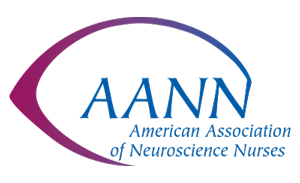Events Calendar
Submit Your Event to the AANN Calendar
Promote your educational events to the neuroscience nursing community. Please note the AANN calendar includes events hosted by other organizations. Please contact the appropriate group for specific questions regarding an event.
View the posting policy and fill out the calendar posting order form with information about your event.
DOWNLOAD THE AANN CALENDAR POSTING ORDER FORM (WORD)
This order form is a form-fillable MS Word document. Please save the document to your computer and then type in the gray form fields.
Join us during the month of May, which is Brain Tumor Awareness Month, for three neuro-oncology-focused webinars presented by Lauren Barbieri, MSN CRNP ANP-BC. Join us on Tuesday, May 3 at 10am CT (8am PT/ 9am MT/ 11am ET) for this webinar focused longitudinal care of the benign brain tumor patient. Frequently, More than 17,000 people in the United States will receive a brain tumor diagnosis. Whether benign or malignant, these tumors will interfere with vital functions. Because of this, managing Brain Tumor patients is a long and arduous, yet rewarding task. Whether benign or malignant disease, an area of expertise is needed to manage these patients. Determining which symptoms are acute versus chronic can be challenging. It is important for Nurses and Nurse Practitioners to be educated on the various medications used to treat patients, as well as potential side effects.
Participants can receive 1 CE contact hour for attending or viewing the webinar and completing the evaluation.
Learning Outcomes:
1. Better understand the complexities that align with caring for patients with Primary Malignant Brain Tumors.
2. Assess individual and/or team practices in light of the information and discussions during the course, and identify specific strategies to implement as part of a continuing improvement process for their practice
3. Analyze the detailed nature of outpatient care of brain tumor patients and identify the tools to determine the individual needs of patients and their families, particularly during treatment.
4. Describe the management of newly diagnosed Gliomas and how recent innovations have affected prognosis and treatment of the disease.
5. Understand the recurrent Glioblastoma disease treatment and evaluate the challenges associated with the treatment options.

